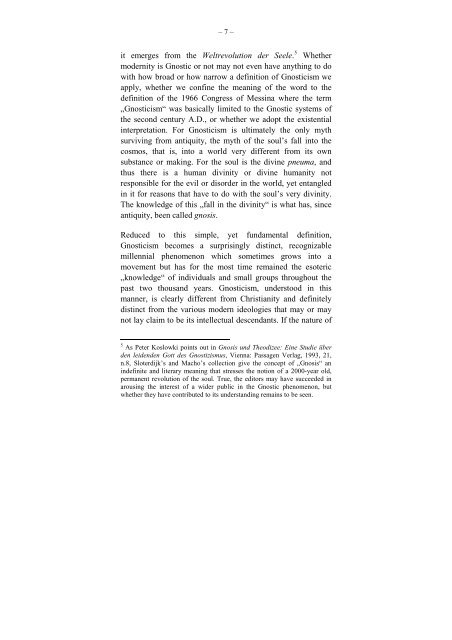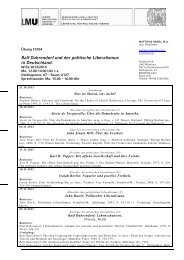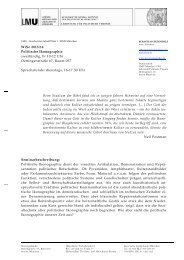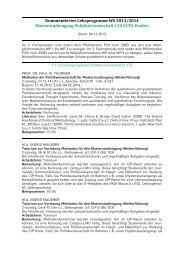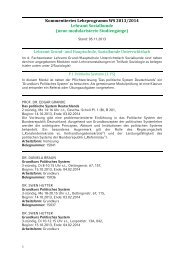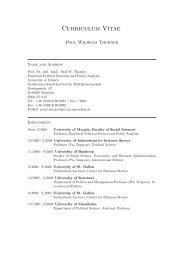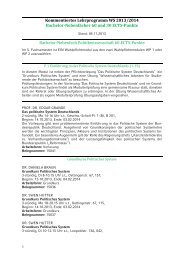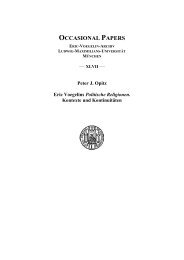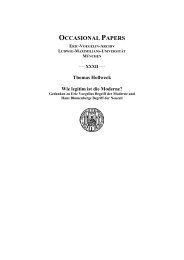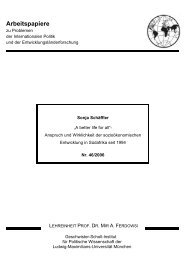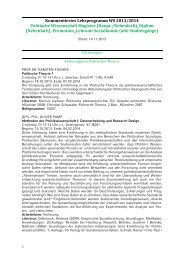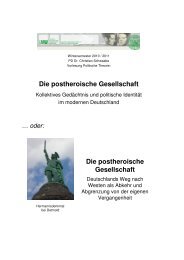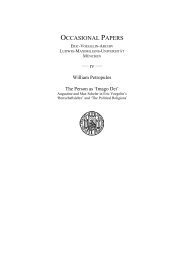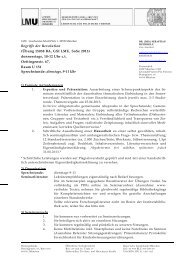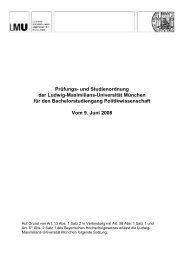THOMAS HOLLWECK is Associate Professor of German at
THOMAS HOLLWECK is Associate Professor of German at
THOMAS HOLLWECK is Associate Professor of German at
You also want an ePaper? Increase the reach of your titles
YUMPU automatically turns print PDFs into web optimized ePapers that Google loves.
– 7 –<br />
it emerges from the Weltrevolution der Seele. 5 Whether<br />
modernity <strong>is</strong> Gnostic or not may not even have anything to do<br />
with how broad or how narrow a definition <strong>of</strong> Gnostic<strong>is</strong>m we<br />
apply, whether we confine the meaning <strong>of</strong> the word to the<br />
definition <strong>of</strong> the 1966 Congress <strong>of</strong> Messina where the term<br />
„Gnostic<strong>is</strong>m“ was basically limited to the Gnostic systems <strong>of</strong><br />
the second century A.D., or whether we adopt the ex<strong>is</strong>tential<br />
interpret<strong>at</strong>ion. For Gnostic<strong>is</strong>m <strong>is</strong> ultim<strong>at</strong>ely the only myth<br />
surviving from antiquity, the myth <strong>of</strong> the soul’s fall into the<br />
cosmos, th<strong>at</strong> <strong>is</strong>, into a world very different from its own<br />
substance or making. For the soul <strong>is</strong> the divine pneuma, and<br />
thus there <strong>is</strong> a human divinity or divine humanity not<br />
responsible for the evil or d<strong>is</strong>order in the world, yet entangled<br />
in it for reasons th<strong>at</strong> have to do with the soul’s very divinity.<br />
The knowledge <strong>of</strong> th<strong>is</strong> „fall in the divinity“ <strong>is</strong> wh<strong>at</strong> has, since<br />
antiquity, been called gnos<strong>is</strong>.<br />
Reduced to th<strong>is</strong> simple, yet fundamental definition,<br />
Gnostic<strong>is</strong>m becomes a surpr<strong>is</strong>ingly d<strong>is</strong>tinct, recognizable<br />
millennial phenomenon which sometimes grows into a<br />
movement but has for the most time remained the esoteric<br />
„knowledge“ <strong>of</strong> individuals and small groups throughout the<br />
past two thousand years. Gnostic<strong>is</strong>m, understood in th<strong>is</strong><br />
manner, <strong>is</strong> clearly different from Chr<strong>is</strong>tianity and definitely<br />
d<strong>is</strong>tinct from the various modern ideologies th<strong>at</strong> may or may<br />
not lay claim to be its intellectual descendants. If the n<strong>at</strong>ure <strong>of</strong><br />
5 As Peter Koslowki points out in Gnos<strong>is</strong> und Theodizee: Eine Studie über<br />
den leidenden Gott des Gnostiz<strong>is</strong>mus, Vienna: Passagen Verlag, 1993, 21,<br />
n.8, Sloterdijk’s and Macho’s collection give the concept <strong>of</strong> „Gnos<strong>is</strong>“ an<br />
indefinite and literary meaning th<strong>at</strong> stresses the notion <strong>of</strong> a 2000-year old,<br />
permanent revolution <strong>of</strong> the soul. True, the editors may have succeeded in<br />
arousing the interest <strong>of</strong> a wider public in the Gnostic phenomenon, but<br />
whether they have contributed to its understanding remains to be seen.


